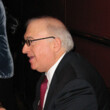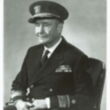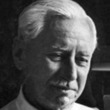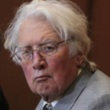1492: the year the world began
Description
More Details
Table of Contents
From the Book - First edition.
Similar Titles From NoveList
Similar Authors From NoveList
Published Reviews
Booklist Review
Surveying the planet entire in 1492, Fernández-Armesto selects a regional event (frequently the death of a ruler) and elaborates its significance in the redirection of history's flow from a humanity sundered into separate civilizations on several continents, toward a humanity somehow sutured together. Enduring cultural boundaries, such as the western Mediterranean line between Christianity and Islam or the east European marches between Catholicism and Orthodoxy, coalesced around that time, as did Islam's reach into western Africa. Recounting them, Fernández-Armesto displays the popular talent he has demonstrated in previous works (Amerigo: The Man Who Gave His Name to America, 2007); his narrative fluidity, not to mention an ability to turn a phrase, converts facts into context in an attractively readable manner. His Columbus is not the explorer per se but the social climber pursuing feudal success, and the voyage of 1492 is more an iteration of ongoing Spanish maritime ventures, such as the colonization of the Canary Islands, than something wholly new. From the Aztecs to Chinese admiral Zheng He, Fernández-Armesto brilliantly sweeps a startling breadth of history into his unified narrative.--Taylor, Gilbert Copyright 2009 Booklist
Booklist Reviews
Surveying the planet entire in 1492, Fernández-Armesto selects a regional event (frequently the death of a ruler) and elaborates its significance in the redirection of history's flow from a humanity sundered into separate civilizations on several continents, toward a humanity somehow sutured together. Enduring cultural boundaries, such as the western Mediterranean line between Christianity and Islam or the east European marches between Catholicism and Orthodoxy, coalesced around that time, as did Islam's reach into western Africa. Recounting them, Fernández-Armesto displays the popular talent he has demonstrated in previous works (Amerigo: The Man Who Gave His Name to America, 2007); his narrative fluidity, not to mention an ability to turn a phrase, converts facts into context in an attractively readable manner. His Columbus is not the explorer per se but the social climber pursuing feudal success, and the voyage of 1492 is more an iteration of ongoing Spanish maritime ventures, such as the colonization of the Canary Islands, than something wholly new. From the Aztecs to Chinese admiral Zheng He, Fernández-Armesto brilliantly sweeps a startling breadth of history into his unified narrative. Copyright 2009 Booklist Reviews.






























